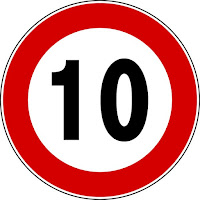Editing
is a special and essential skill for a fiction writer, as I discovered when revising
my crime novel, The Cut. And what’s more, it is a skill that requires a lot of
practice to develop. In essence, you are learning to look dispassionately at
what you’ve written and to think about it forensically. You have to ask
yourself a series of difficult questions about your writing. And find the answers
that are going to make your book better. Editing is also a very immersive
experience. You are focusing on the fine detail of your writing and how well it
fits into the overall story. This was very welcome during my long wait for the
results of my recent cancer surveillance scan. Editing the manuscript was the
only thing that managed to divert my mind from worrying about the threat of
recurrence for a few hours. So I did a lot of it. Draft two did work much
better than draft one, and ended up being 35,000 words shorter. I then
submitted this draft to a professional editor for feedback.
This, however,
was another source of anxiety. I felt sure that the editor would be critical of
my writing and find many flaws. After all, he was an experienced author with
several prize-winning novels to his name. But when the report came, it was
quite the opposite. He told me that much of what I’d written worked extremely
well. He was very complimentary about the voice and character of my narrator,
the relationships between the characters, the witty and believable dialogue and
the richly realized setting. I felt a glow of pride as I read on. Then he got to
a series of suggestions for improving the book. He felt that the motivations of
the characters weren’t consistent in places. He also felt that the book would
work better if certain scenes were altered and moved to different positions in
the narrative. The final problem he saw was that the book was still too long and
needed to be at least 10,000 words shorter.
So I
started work on draft three. I began with the structural changes that the
editor recommended. These also involved adding several scenes. The main job is now
to condense the overall narrative. This means going through the draft again,
scene by scene, and cutting out all but the essential elements. Then asking
yourself, does the scene work a lot better after these changes? Could it still be
improved? How well does it fit with the scenes that precede and follow it? Is
the tone consistent with the development of the characters that are in the
scene? Are there any continuity problems with the content of the scene? And so
on.
I’ve certainly become better at editing. And the draft is improving all of the time. But places where I can cut text are getting harder to find. I’m still a bit away on my word count. So I’ll have to get whittling. And perhaps a little more ruthless.

